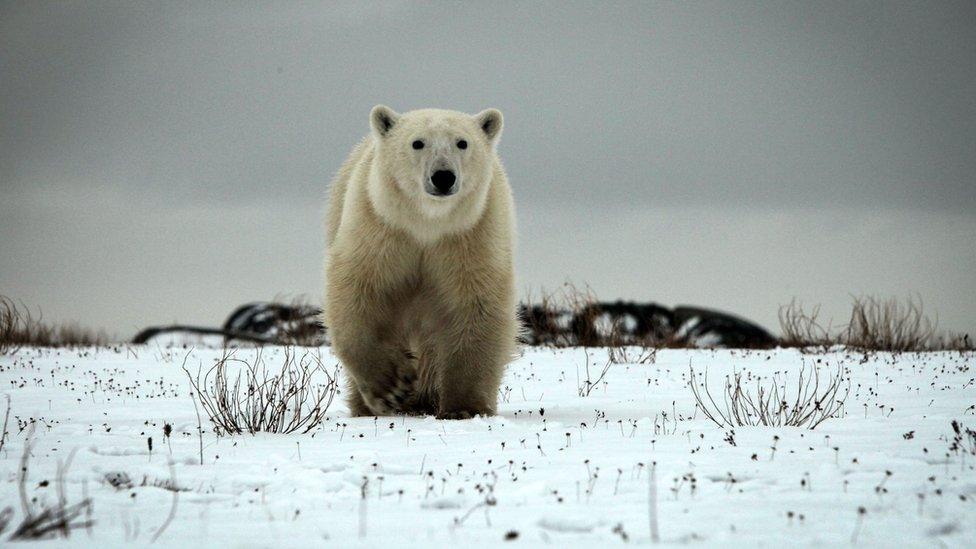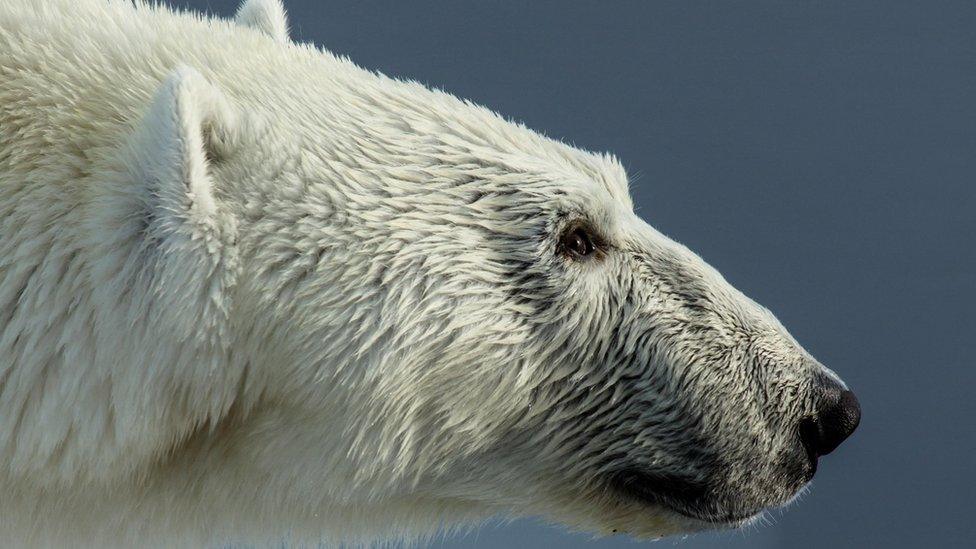Hunter killed in attack by polar bear in Canada
- Published

File photo of a polar bear
A hunter has been killed in northern Canada in an attack involving a polar bear and her cub, and two other hunters received minor injuries.
The hunting party from Naujaat, Nunavut, an Inuit hamlet located on the Arctic Circle, were out seeking narwhal and caribou when they were attacked.
Both the mother bear and cub were shot and killed following the incident.
This is the second fatal polar bear attack in Canada's northernmost territory this summer.
Naujaat Search and Rescue went looking for the men after they failed to return as planned on Thursday from their hunting trip.
The two survivors of the hunting party were found off the shore of Lyon Inlet, about 100km (60 miles) east of Naujaat.
They had been blocked in by sea ice that was making it dangerous to navigate out to open water and leave the area. They also had mechanical issues with their boat.
The Royal Canadian Mounted Police in Nunavut and the coroner's office are investigating the incident and have not released more details about the attack.
It is not clear whether the mother bear and cub were killed by the hunters, or if they were destroyed by the authorities.
The CBC reports, external three other bears were also killed in the following days after they were drawn to the location.
The Canadian Press reported that the two surviving injured hunters huddled for three days with the body of their friend, staying awake waiting for rescuers as several other bears circled their camp.
In July, a father died protecting his children in a rare polar bear attack in Nunavut.
Aaron Gibbons, 31, was on Sentry Island, a popular fishing and hunting spot on the west coast of Hudson Bay, when he encountered the bear on 3 July.
He told his daughters to run and placed himself between them and the bear, which was later shot and killed.
Robert Hedley, Naujaat's senior administrative officer, told the BBC on Wednesday that the community is always concerned about polar bear incursions and wildlife management in general.
He said in the wake of this second fatal attack, both the hamlet and Nunavut government have to take a close look at the reasons behind the two incidents.
A 2017 study looking at polar bear attacks, external in Canada, Greenland, Norway, Russia and the US found they were likely to be caused by hungry male bears or - more rarely - females trying to defend cubs.
Polar bear attacks are uncommon. Researchers documented 73 attacks between 1870 and 2014 across the five countries, but warned a loss of sea ice habitat and increased interaction with humans could increase their frequency.
- Published5 July 2018
